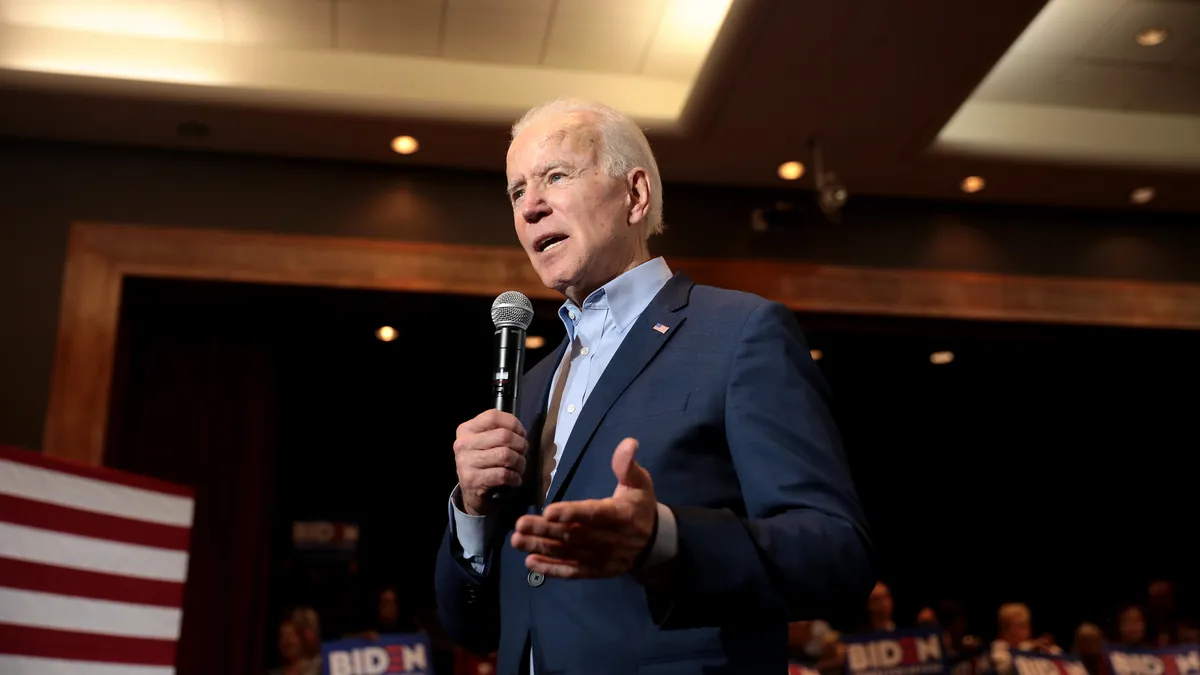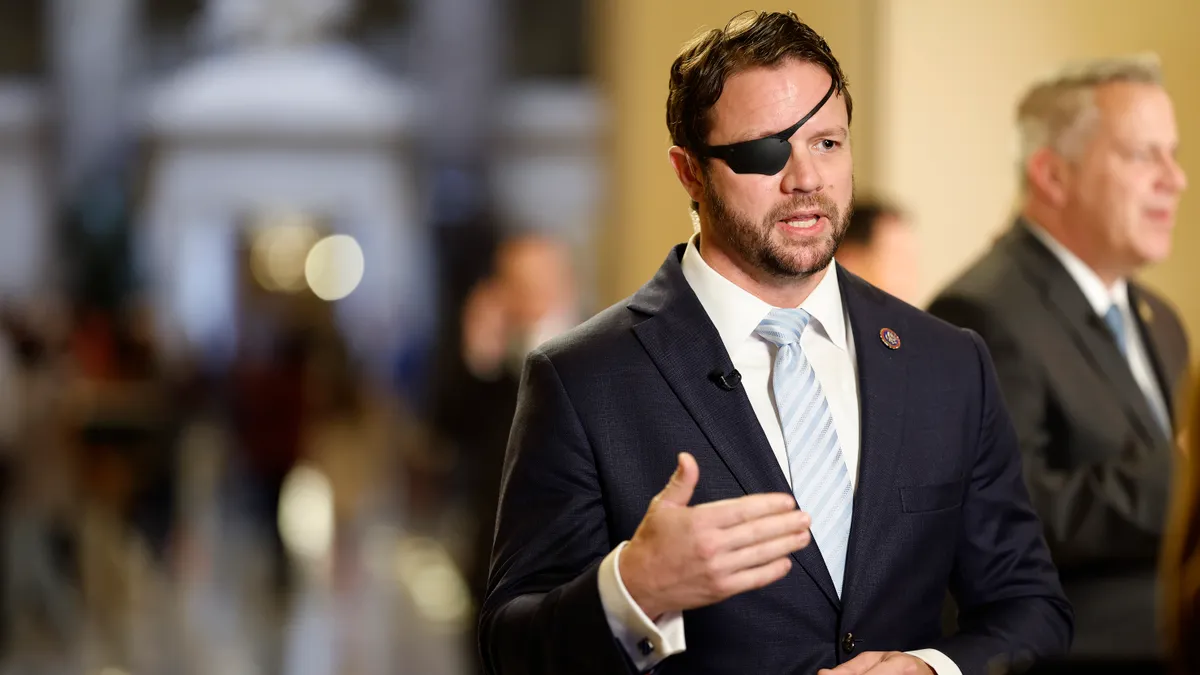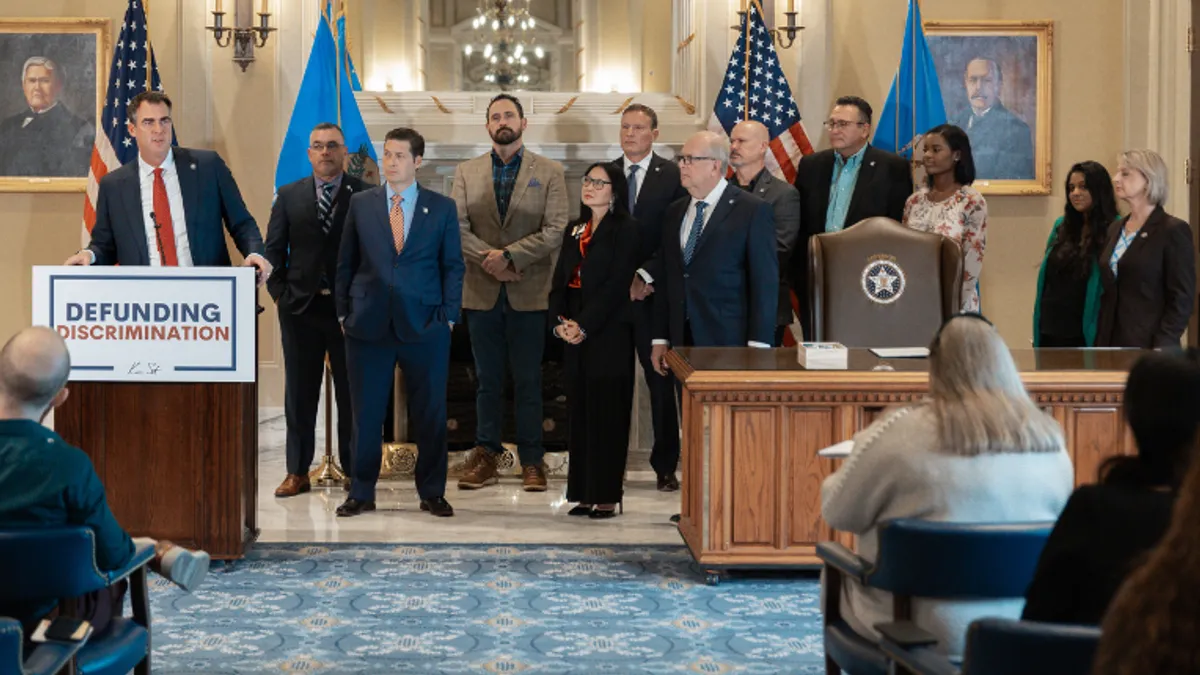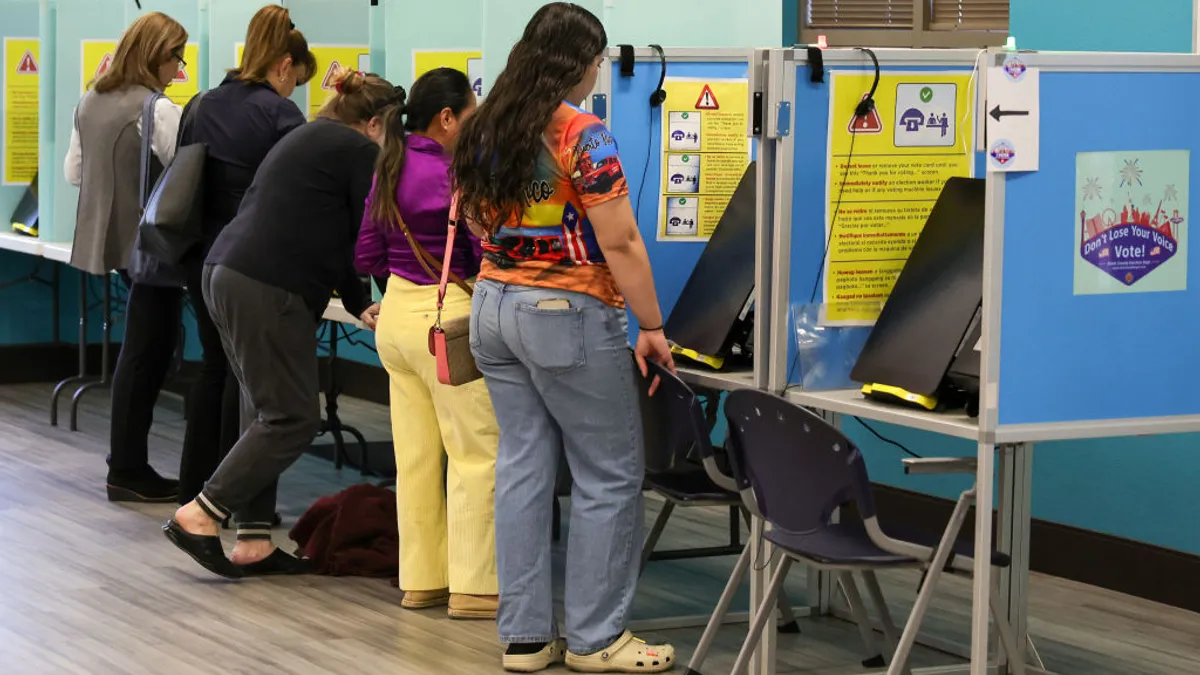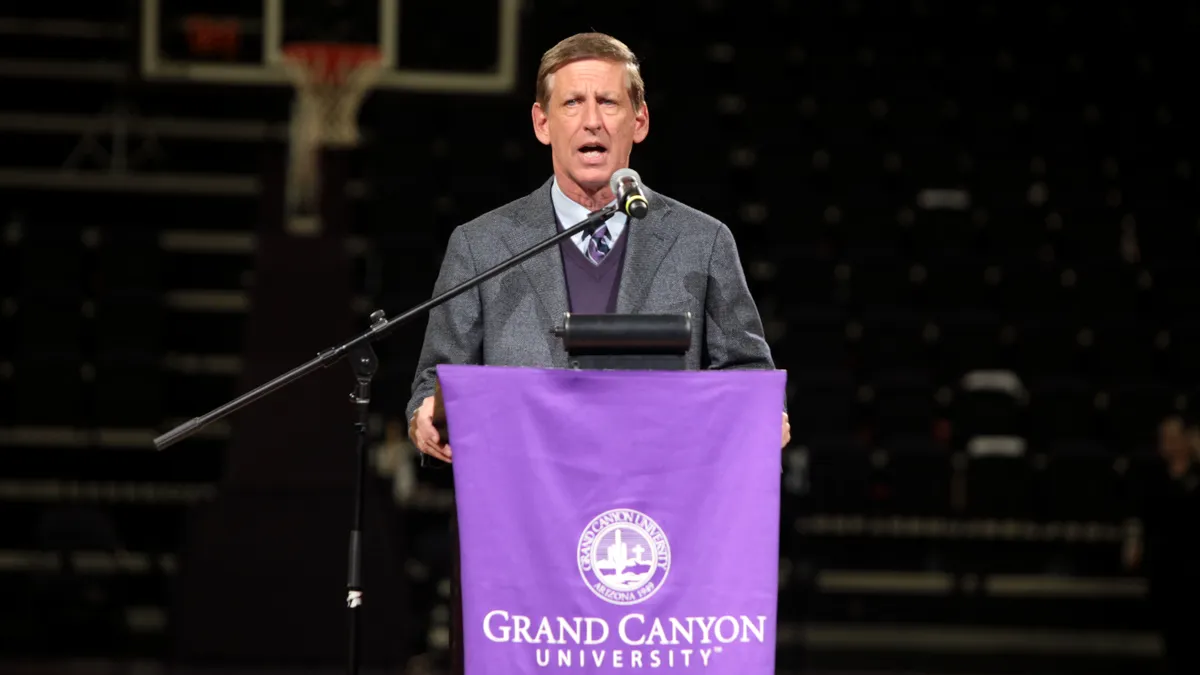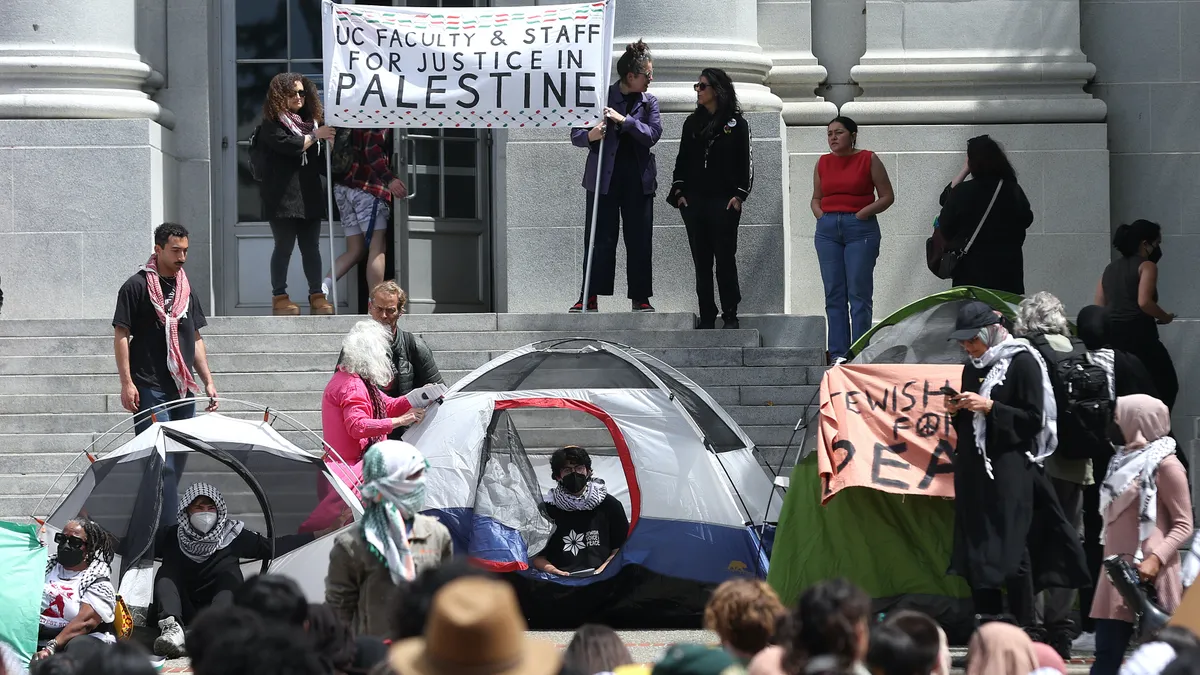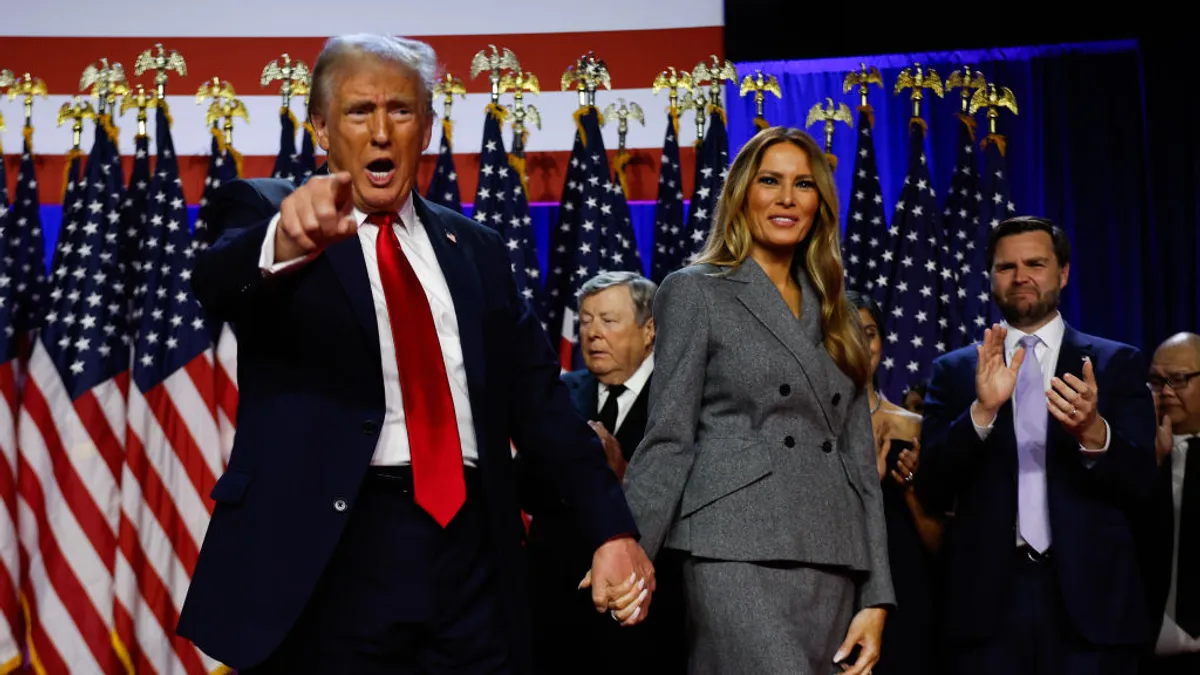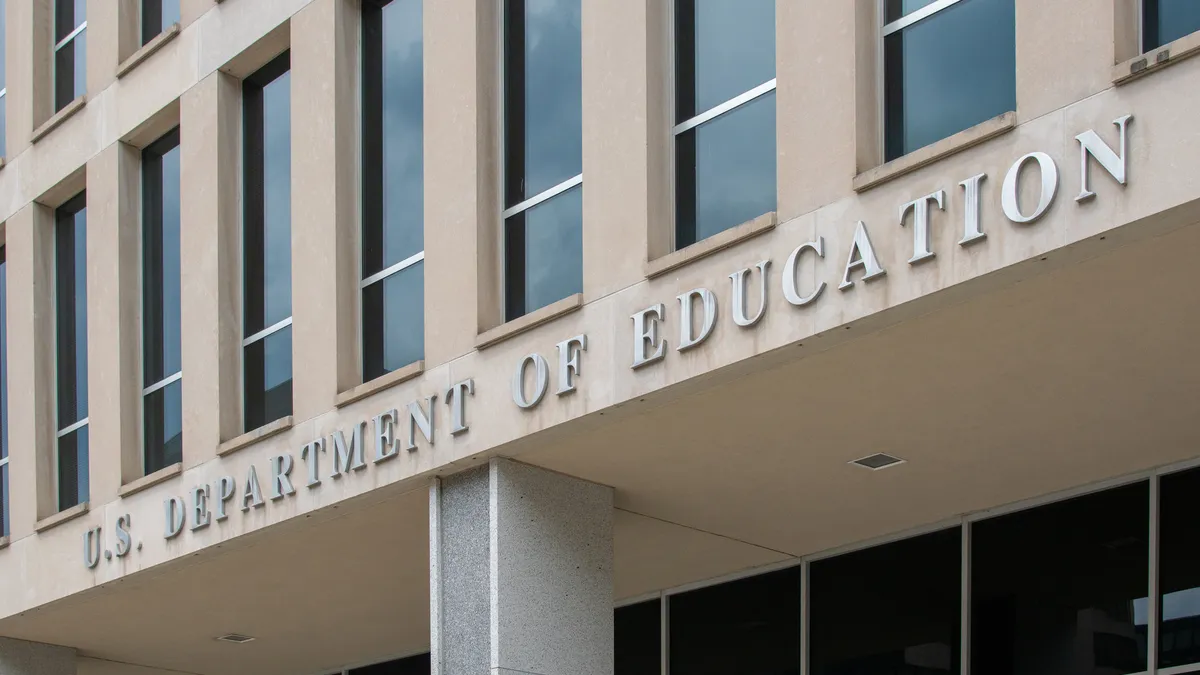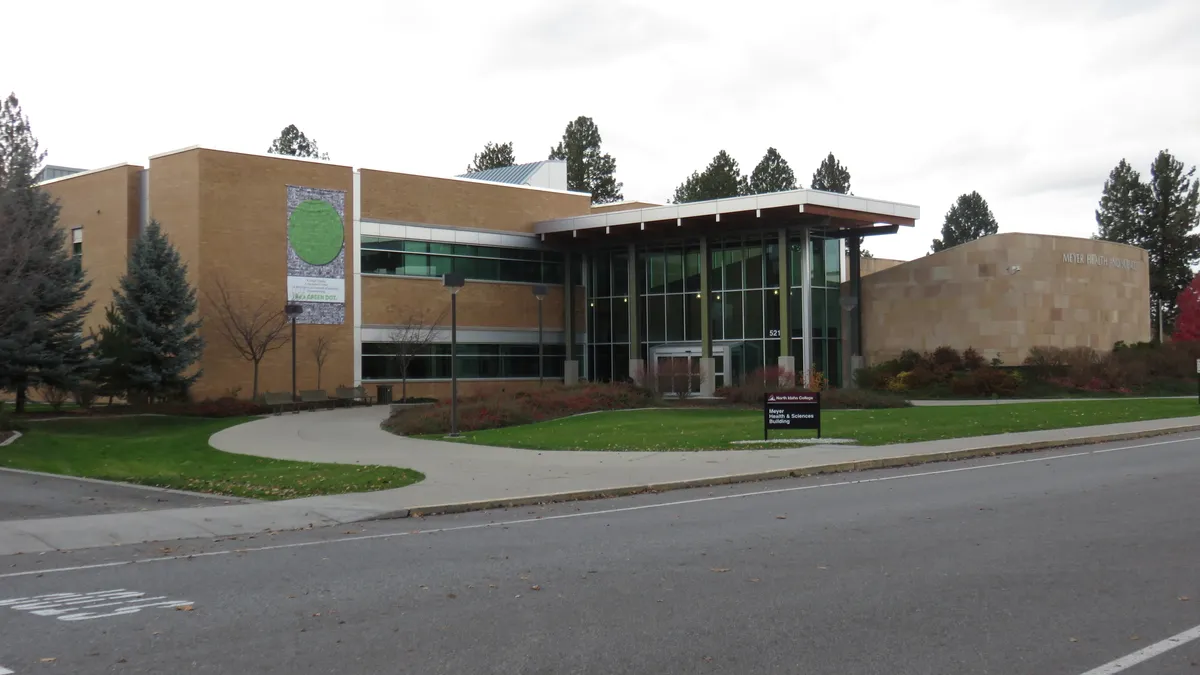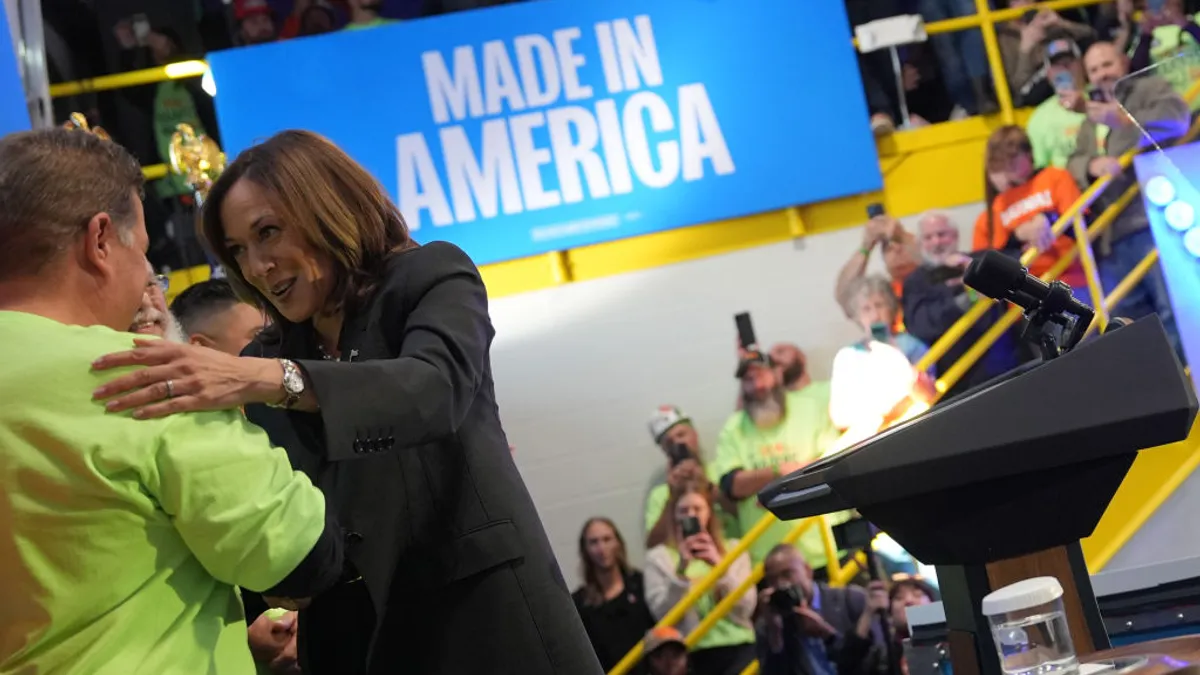Presidential hopeful Joe Biden began promoting a free college plan earlier this year that would allow a majority of students to attend public institutions tuition-free. But the pandemic-triggered recession could make it difficult to muster support from Congress and the states.
To appease the Democratic Party's left-wing, Biden in March expanded his earlier proposal, which guaranteed students two years of tuition-free community college. The updated plan — which partly draws from a 2017 bill co-sponsored by Sen. Bernie Sanders, I-Vt — also allows students from families earning less than $125,000 annually to attend public four-year colleges without paying any tuition.
The crux of the proposals are federal-state partnerships. Biden's campaign website says states would be on the hook for one-quarter of the funding for his free community college plan, while the 2017 free college proposal, which covered two- and four-year schools, requires states to supply one-third of the funding. The federal government would put up the rest in both plans.
"That detail is really important right now," said Wesley Whistle, senior advisor for education policy and strategy at New America. "State budgets are not great and likely will continue to get worse if nothing happens from the federal government in terms of a stimulus."
Federal-state partnerships are designed to discourage states from reducing financial support to colleges during economic downturns, policy experts say.
Biden's campaign website does not say how much the plans would cost, though his staff recently walked back his comments during a CBS interview that paying for four-year tuition would cost $150 billion, clarifying that it could be twice as much. Biden's campaign did not respond to Education Dive's emailed request for comment Tuesday by publication time.
Proponents of free college plans laud some elements of the proposal. Neither Biden's community college plan nor the 2017 proposal excludes adult students, who are generally thought of as being age 25 or older and are left out of many statewide promise programs. And the plan applies the funding for tuition before other federal grants so students can use the latter toward other costs of attending college, such as housing and transportation.
Georgetown University's Center on Education and the Workforce estimated that the plan would cost more than $680 billion over a decade. Within 10 years after implementation, however, the tax revenue increases from graduates who benefited from the free tuition would be greater than annual government spending on the program, according to CEW's analysis. It assumes the federal government would cover two-thirds of the program's cost.
Yet Biden's plan faces several hurdles. The pandemic could make states less willing to invest heavily in a new higher education program — even if the federal government is supplying the majority of the funding. The proposal could also take a back seat to other pressing issues during the coronavirus crisis and face heavy scrutiny from free college critics.
What would stop Biden's plan?
Some policy experts point to a big problem: States are broke.
"The free college plan was designed and thought of during good economic times," said Jason Delisle, a resident fellow at the American Enterprise Institute, a right-leaning think tank. "It's going to be very difficult for states to opt in given the amount of money that they'd need to come up with, even if it's only one-third."
Several higher education systems are bracing for potential budget cuts because of the coronavirus pandemic while others are already grappling with them, according to an analysis from New America, a left-leaning think tank. Kentucky's governor, for instance, told public colleges to anticipate an 8% budget decline, while Rhode Island government officials told state colleges to prepare for a 15% cut. Additionally, some states, including Oregon and Maryland, are struggling to fund their free college programs during the crisis.
"You're never going to get to free college if you can't increase (states') funding," Whistle said.
That's why he and some other policy experts are in favor of the plan including language that automatically increases the federal government's share of funding during an economic downturn so free college programs don't unduly sap state budgets.
This kind of trigger could be especially important for the higher education sector, said Jessica Thompson, associate vice president at The Institute for College Access & Success. "Typically in a recession you see enrollment go up at the same time that you see state funding go down," she explained. "It's a terrible clash."
"Typically in a recession you see enrollment go up at the same time that you see state funding go down. It's a terrible clash."

Jessica Thompson
Associate vice president, TICAS
Whether that trend will play out during this downturn is uncertain. Community college enrollment fell 9.4% year-over-year this fall, according to preliminary data from the National Student Clearinghouse Research Center that accounts for 54% of colleges. Overall undergraduate enrollment is down 4%.
However, the patchwork of existing free college programs could create other issues. Roughly half of states offer some form of tuition-free college to students, and there are even more at the local level, according data from College Promise, which advocates for free college programs.
The programs differ drastically. Some are open to nearly all students, while others have strict eligibility requirements. Many programs are last-dollar, meaning they pay for students' remaining tuition only after all other grant aid has been applied and, therefore, are potentially less expensive for the jurisdiction offering them than those that apply promise funds first.
Biden's plan also calls for additional funding to help community colleges improve student success and assist under-resourced four-year schools. Extra funding may be key for some colleges to handle a potential influx of students through such a program.
President Donald Trump has not proposed a federal free college plan, and his campaign staff have criticized Biden's pitch.
States that opt into Biden's plan would be required to adopt its eligibility requirements and funding approach, observers said, though they could likely keep their own branding for the programs. "That's another reason why states are going to be disinclined to do this," Delisle said. "I don't think they want to give up control of their higher education systems."
What could change?
Even if Biden becomes president, it's unclear whether Congress would have the appetite to pass a free college plan during the crisis. Some observers say pitching the program as a way to help the economy recover could help it get passed.
High-skill jobs led the recovery after the Great Recession, and "nearly all" of the positions added in that category went to workers with at least a bachelor's degree, according to a 2016 Georgetown CEW report. CEW defines high-skill jobs as those for which half or more of workers have at least a bachelor's degree.
"Can we prepare — and better prepare after COVID — a workforce that is going to supply what the country needs?" said Martha Kanter, CEO of College Promise. "Our country is going to need a more educated populace."
However, New America's Whistle said the free college proposal could be scaled back to bring down the price tag. In that case, it could look more like Biden's original plan, which proposed only two years of free community college. Or, it could include a federal-state partnership for higher education funding, but on a smaller scale.
Observers also say the administration has some kinks to work out. For one, private colleges will likely oppose a plan that could pull students away from their campuses.
And Georgetown CEW Director Anthony Carnevale said the proposal would be more effective if it also set up, or even mandated, counseling to help students understand what jobs and salary levels they could expect from college programs.
"We can't be spending this kind of money on something, especially public money, without some accountability and transparency," he said.



